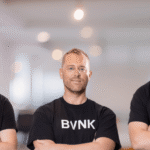Shears said C-suite leaders are telling her that as more and more workers have engaged with the technology, either through enterprise tools or participating in a proof of concept by their organization, “they can see where it’s an enabler.” But based on its maturity, it isn’t in a place where it can entirely replace human workers. There needs to be “a human in the loop or a human on the loop.”
A defining insight from Spears is the changing relationship between humans and AI at work. Spears describes the technology as “a toddler”—capable of impressive feats yet still immature and requiring context, guidance, and oversight. “It’s not a toddler in all fields—software development, for instance, it’s much more advanced. But for most enterprise uses, it still needs human intervention, she observed.
This ongoing need for human skills, Spears believes, has made employees more comfortable with AI, seeing it as a tool that enables rather than replaces them. “That persistent need for human engagement, I think people have found that comforting,” Spears said, emphasizing the unique skills now required: critical thinking, questioning, and adaptability. She said she believes “Renaissance skills” will be increasingly important, but clarified that it doesn’t mean the workforce will be full of poetry graduates, but “the art of thinking, the art of questioning” will be crucial for being the human in the loop.
When asked if people have found that AI tools are bad or don’t produce a return on investment, Shears said people went from having an expectation that AI would be just as good at work as someone with lots of experience to understanding that, while it can go much faster than humans at many things, like a toddler, it can cause a lot of damage without close supervision.
KPMG’s data reflects this shift—organizational leaders are now tracking productivity (97%), profitability (94%), and quality improvements (91%) as evidence of AI’s business impact, even as broader enterprise outcomes continue to evolve.
Workforce transformation is now firmly underway, with Spears seeing hope especially for entry-level workers who are “digital first,” yet now face higher expectations for skepticism, critical thinking, and adaptable reasoning.









